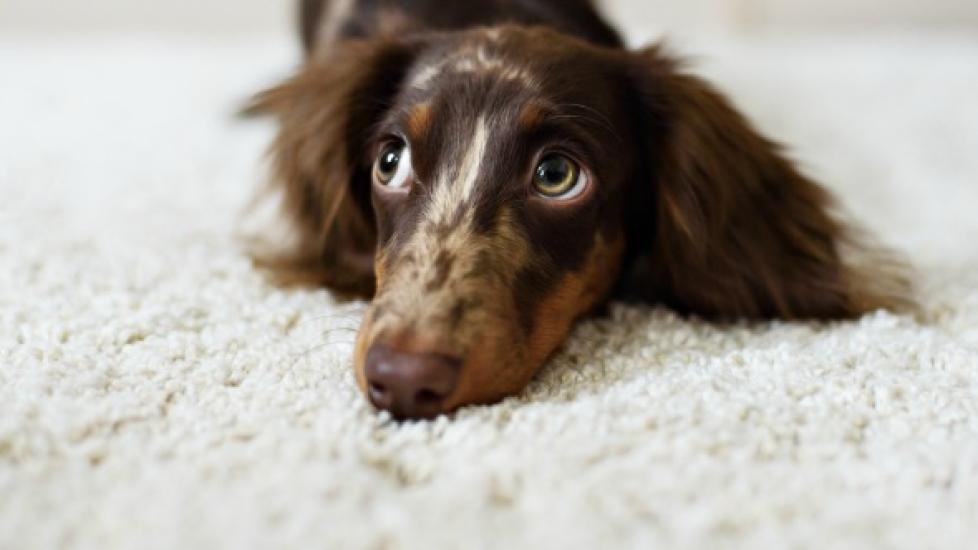Small Intestinal Bacterial Overgrowth (SIBO) and Pancreatic Insufficiency
When a dog or cat is afflicted with exocrine pancreatic insufficiency (EPI), the animal’s body is unable to break down and absorb the nutrients in the foods he or she eats. Affected animals will lose weight; have loose, foul-smelling stools; and have a much greater appetite. This is because the animal is, essentially, starving to death.
The main focus of treatment for this condition includes the life-long use of enzyme replacements in the animal’s food. Because multiple secondary issues could develop due to this disease condition, you and your veterinarian will need to closely monitor your pet for the remainder of his or her life.
One such potential problem in animals with EPI is a condition called small intestinal bacterial overgrowth (SIBO). It is commonly seen in dogs with EPI and can complicate treatment unless it is recognized and brought under control. Cats are more often afflicted with irritable bowl disease than SIBO.
What Causes SIBO?
Small intestinal bacterial overgrowth develops when the bacteria that are already present in the intestinal tract are given the opportunity to use the undigested material passing through the intestine as fuel to grow and thrive. The food that isn’t being absorbed by the animal is being “eaten” by the bacteria, which leads to a population explosion.
The overgrowth of “bad” bacteria in the gut of animals with EPI leads to even greater problems with the function of the intestinal tract. Motility is disrupted and watery (secretory) diarrhea can develop. Toxins are produced by the expanding numbers of bacteria, which can cause severe damage to the intestinal cells. If not treated rapidly, permanent digestive disorders and even food intolerances can result from SIBO.
Deficiencies with EPI and SIBO
If your pet has pancreatic insufficiency, he or she will eventually develop deficiencies in certain vitamins, especially the fat-soluble vitamins like A, D, E, and K. Because vitamin K is an important part of the mechanism that causes blood to clot, deficiencies in this particular vitamin can bring about bleeding problems in animals, particularly cats, with EPI. Cats are also prone to developing folate (a B vitamin) deficiencies.
Vitamin B12 (cobalamin) is commonly deficient in animals with SIBO. This is because the bacteria that build up in the small intestine are able to take in this particular vitamin easily and use it. In fact, a deficiency in B12 is one sign of secondary SIBO in animals already diagnosed with EPI. This particular deficiency must be corrected in order for an animal with EPI to respond to treatment and survive.
Caring for Animals with SIBO
Those animals that don’t respond as they should to enzyme replacement therapy for EPI should have their blood levels of vitamin B12 evaluated. If necessary, B12 should be given by injection to supplement any deficiencies.
Oral antibiotics are the treatment of choice for SIBO. Commonly prescribed antibiotics for SIBO include metronidazole and tylosin. In some cases, tetracyclines or other broad-spectrum antibiotics may be used. Treatment should begin to be effective in about a week, but may be continued for several weeks in order to bring about sufficient control of the bacterial growth. In some cases, your pet may have a persistent case of SIBO which will require antibiotic therapy given in small doses on a frequent (or even permanent) basis.
During the course of antibiotic treatment, your veterinarian may suggest feeding your pet probiotics and/or prebiotics to help re-establish a healthy environment in the intestinal tract.
Probiotics, such as acidophilus and lactobacillus, are “friendly” bacteria that are beneficial to the health and normal function of the small intestine. These substances should be given at a low dose to start and can be slowly increased until the animal is able to tolerate a higher dose. Your veterinarian can help you choose the correct source of probiotics. Dairy products, however, are not the best choice for animals with SIBO, as intestinal damage decreases the levels of lactase produced in the gut needed by the animal to digest dairy.
Prebiotics, such as fructo-oligosaccharides or FOS, will stimulate healing in the gut and encourage the growth of beneficial intestinal bacteria. Feeding of probiotics and prebiotics should be done several hours before or after the administration of antibiotics, since they could be destroyed by the medication.
Nutritional support is also highly important if your pet has EPI and secondary SIBO. A highly-digestible, lower fiber diet will help reduce the amount of “fuel” available for bad bacteria to feed on and thrive in the small intestine. Long-term feeding of probiotics and prebiotics might also be considered to help prevent the development of SIBO. Your veterinarian can help you select the proper diet and supplemental therapy that will work best for your pet’s condition.
